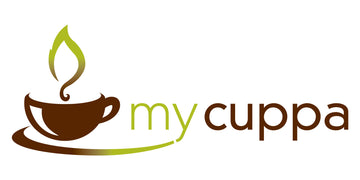☕ Australian Coffee Industry Crisis: The Brewing Storm of Price Wars and Falling Quality
There is a storm brewing in the Australian coffee industry.
The segment that has traditionally acted as the bellwether—our beloved cafes—is showing uncomfortable signs of struggle due to excessive competition and economic pressure.
After more than a decade of robust growth, we are now seeing the inevitable consequence of a maturing, saturated market. This crisis is not unique, but its impact on the nation's "best cafe coffee" reputation is significant.
The Financial Pressure Cooker on Cafes
Rents, labor, energy, and a raft of input costs are rising faster than cafes can reasonably adjust the selling price of their products. This pressure cooker environment leads to further deflationary pressure and diminished returns from daily operations.
When profitability reduces, operators are forced to find creative (and sometimes unethical) ways to compensate. We see evidence of this across all retail industries, including the atrocious situations arising in franchise systems where survival relies on cost-cutting measures:
-
Running cash off the books.
-
Underpaying staff (reducing service quality).
-
Cutting corners on input costs (coffee quality).
To be clear, the challenge lies in the struggle to keep a business head above water, not necessarily malicious intent from small business owners.
The Roaster Overcapacity Problem
Set against this financial squeeze is Australia's massive coffee roasting capacity, which has expanded rapidly based on the naive blue-sky premise of: "If we build it, they will come."
This hubris—that rising quality levels and prices are tolerable to cafe owners—has led to a critical expectation gap:
-
Roasters: Still bullishly demanding higher prices for "higher quality" beans.
-
Cafes: Economically mandated to ratchet down expenses.
The result is a shift in bargaining power. With so much new roasting infrastructure added, the supply side (roasters) is now facing a sense of desperation. Discounting wars are erupting everywhere in the wholesale segment as operations seek to maintain volumes at the expense of price.
The Unspoken Trade-Off: Price Wars vs. Quality
The immediate reaction for many cafe suppliers caught in a price war is to hunt for cheaper grades of green coffee in order to hold onto their at-risk margins.
But what they won't do is clearly communicate this strategic change. Their carefully crafted illusionary image of "only the best" must be maintained at all times, regardless of the real quality they are pushing out the door.
This pressure on wholesale prices can only lead to a greater proportion of lower grade roasted coffee product being released into the Australian market, impacting the existing high standards that took a decade to build.
Market Maturity and the Price of Survival
We see this turbulent period as a market segment showing initial signs of maturing, but not without significant pain. The future is likely to include:
-
Slower Growth: The market contraction forces a reality check on investment.
-
Consolidation/Exits: Damage will be caused, and some players will exit the game or be swallowed up (though industry egos often inhibit timely mergers).
-
Increased Competitive Pressure: Higher stakes lead to fierce competition, increasing the likelihood of aggressive, desperate sales tactics to influence cafe owners.
The small, crafty roasters are perhaps the most vulnerable, lacking the scale to compete on price and having their only card—expensive, hand-crafted offerings—devalued by the market shift.
The big question remains: Will coffee in Australia eventually mirror the price and value focus seen in Europe? We think price and value are now more important than ever before, signalling a fundamental change in the Australian coffee retail dynamic.









